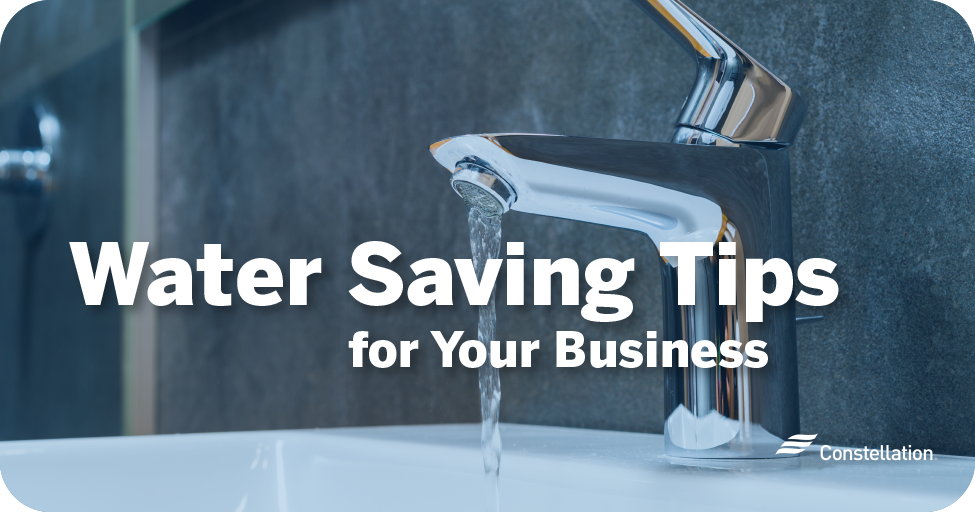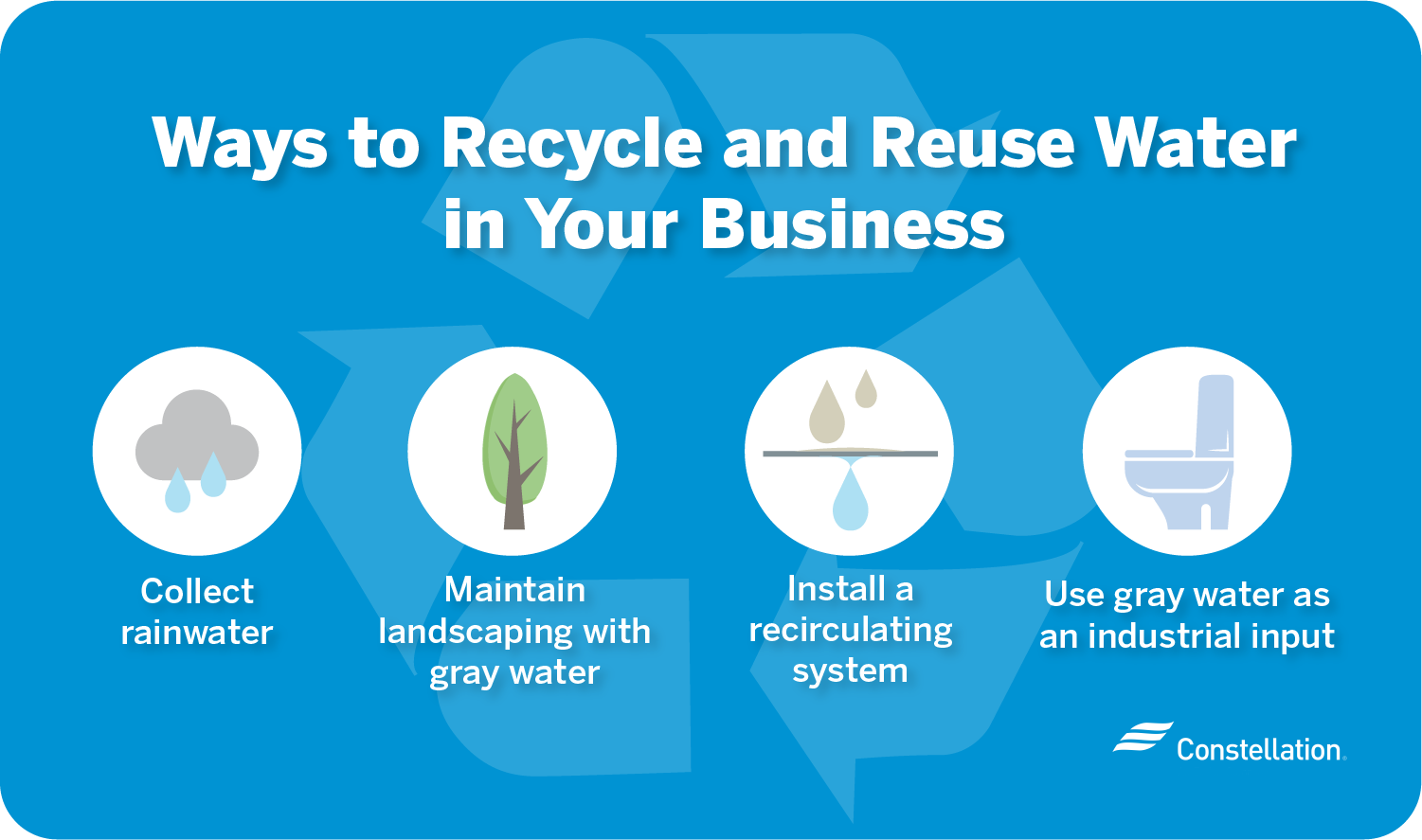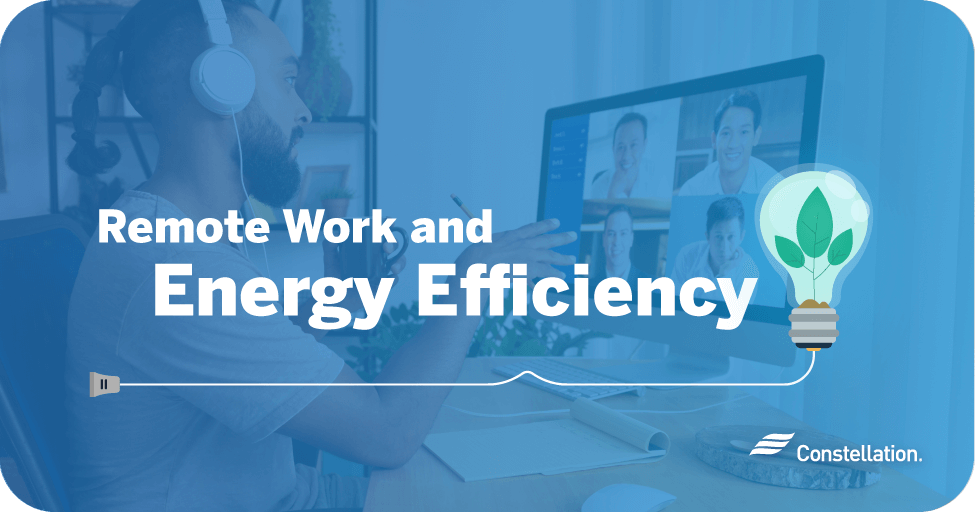
- Category:
Small Business Energy Savings - Published:
August 2, 2021 - Updated:
July 11, 2024
Water Saving Tips for Your Business
Saving water isn’t just important to homeowners and city planners — people are seeking high-impact water saving tips for businesses, as well. This makes sense, given the many ways your business can conserve water throughout your day-to-day operations.
Reducing water usage in the workplace benefits both the environment and your business’s bottom line. Smart water use conserves this vital and limited resource, protects the ecosystem around your business, reduces the strain on water treatment and sewage infrastructure, and cuts down on your energy use and utility costs.
A sustainable business can also help keep water costs down for everyone. You can rightly earn a reputation as a responsible member of the community.
7 ways to save water in your business
How can businesses conserve water? The solutions are numerous. Your business can contribute to smarter use of water in ways that are big and small, inside and outside your place of work. Many of the following ways to save water at work are easy to implement and are more than worth the cost.
1. Invest in high-efficiency equipment
Your plumbing equipment dramatically affects water usage at your workplace. Low-flow, high-efficiency toilets and energy-efficient dishwashers address two of the biggest water consumption appliances in the average business.
If you have a restaurant or a manufacturing business that uses water in your processes, you have even more opportunities to optimize your water usage. Look at ways to upgrade your equipment or perhaps adjust operations to achieve greater efficiency.
2. Find and repair water leaks
Water leaks, even minor ones, are literally sending money down the drain. A dripping faucet can be an annoyance. But if you have leaks in your pipes and fittings, you may have a potentially bigger problem.
Leaks may be causing structural damage or promoting the growth of toxic mold. They can introduce contaminants into your water in certain situations. Furthermore, leaks tend to grow worse over time, wasting more water and causing more damage. Finding and fixing them in a timely manner is one of the top water saving tips for businesses.
3. Install low-flow faucets in your business
Another way to reduce water usage in the workplace is to install low-flow faucets in bathrooms, kitchens and break areas. Users of these fixtures usually don’t need full, high-pressure water flow for washing hands and rinsing dishes.
Replacing old faucets is one of the more practical ways to save water at work, as many people barely notice any difference in performance from water-efficient faucets. A secondary value when replacing faucets is that new ones are much less prone to leaks.
4. Recycle and reuse water whenever possible
Reducing water usage is only part of how your business can conserve water. Careful stewardship of this resource through capture, reuse and recycling can help you conserve drinking water. Using gray water that is not contaminated with biological or chemical wastes is a great way to get the most value for every gallon. The Environmental Protection Agency (EPA) offers some water reuse insights.
Here are some easy ways to recycle water:

- Set up a system for collecting rainwater.
- Use gray water to maintain your business’s landscaping.
- Install a local recirculating system that filters and treats gray water for reuse.
- Use gray water as an industrial input when purity doesn’t matter.
5. Get your employees engaged in water conservation practices
One of the best ways to save water at work is to get staff involved. The little things that other people do every day can have the greatest impact. For instance, office signs to conserve water are a helpful reminder and can support water saving habits among your employees.
Ask for ideas from your staff. When you get employees engaged in energy-saving practices, you get better results.
6. Practice efficient landscaping techniques
Maintaining the exterior of your property can use more water than you might think. One of the more high-impact water saving tips for businesses is to be careful with water used outside your physical location:
- Design landscaping around your building using low-maintenance, drought-resistant plants that don’t need much water.
- Replace thirsty lawns with trees, shrubs and ground cover to add visual interest.
- Use mulch to reduce evaporation so that more moisture in the soil goes where it’s needed in plant roots.
- Reuse safely captured rainwater and recycled water for watering plants around your place of business.
7. Schedule a water audit for your small business
You may wish to invest in a comprehensive water audit. If yours is a water-intensive business, this kind of comprehensive analysis can uncover how to reduce water usage in the workplace, from office space to manufacturing facilities to landscaping. You’ll get a complete view of how much water you’re using and where waste might be happening, as well as get detailed recommendations for conserving water.
A water audit plays a role in tracking your business’s utility costs.
Why is it important for businesses to conserve water?
The benefits of running an eco-friendly business are many. Water conservation practices play an important role in making your business more sustainable.
The benefits of water conservation in the workplace
Environmentally friendly work practices that include conserving water pay off in many ways. Here are some excellent reasons to conserve water at work:
- Reduce your overhead costs. Wasting water is costly. You pay not only for the water itself but also the energy to heat and pump it through your facilities.
- Preserve the natural environment. Water supplies in many locations are under pressure. Aquifers are being sucked dry, while rivers and reservoirs are running low. Increasing population and demand make careful stewardship of this resource everyone’s responsibility.
- Receive tax benefits or rebates. If your business operates in a state experiencing water shortages, you may qualify for tax incentives that reward water conservation.
- Contribute to water safety. Leaking pipes are more than just wasteful; they provide points of entry for contamination.
- Avoid costly repairs. Water can be a source for expensive damage if leaks are left unchecked. Prevention is always cheaper than repair.
- Ensure a reliable supply. When demand is high or when water leaks are significant, water pressure can drop without warning. When your business does its part, it helps protect the integrity of the water system.
Saving water is vital to the health of your community and contributes to the viability of your business. Your responsible contribution to the economy and the environment enhances the stature of your business among employees, customers and neighbors. When everyone works together to protect the water supply and make smart use of this resource, we all benefit now and into the future.




